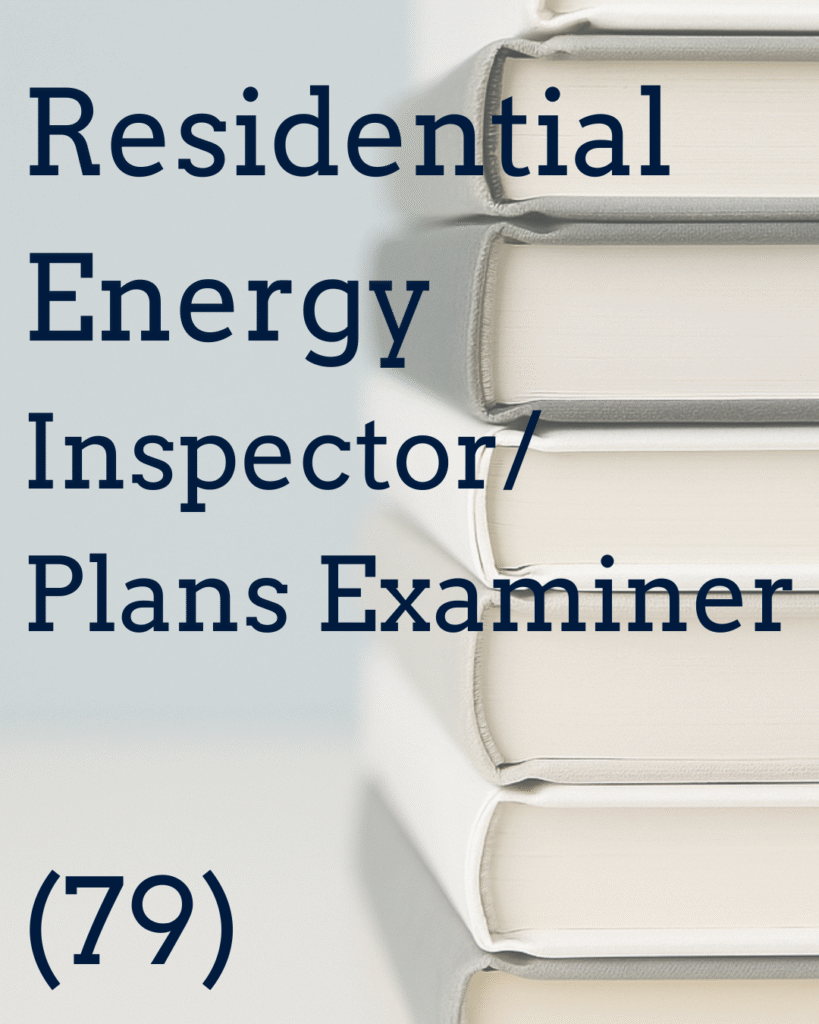“Start free with our ICC 2024 Residential Energy Inspector/Plans Examiner Study Guide and see how effective exam prep can be. 👉Upgrade today for 120 days of full access👈 — including interactive flashcards, practice quizzes, and a timed exam simulation — the complete system designed to help you pass with confidence.”

🔹Get 120 Days of Full Access Today🔹
🔹Scope – Residential Energy Inspector/Plans Examiner
A Residential Energy Inspector/Plans Examiner reviews construction documents and inspects residential buildings, systems, and sites to ensure compliance with the International Energy Conservation Code (IECC). Responsibilities include verifying the thermal envelope, insulation values, fenestration performance, HVAC and service water heating systems, air leakage control, and moisture protection. Inspectors must determine the correct climate zone, apply the appropriate compliance path, and know when commercial provisions apply.
🔹 Exam Information
About the ICC Energy Inspector/Plans Examiner Exam
- Based on: 2024 International Energy Conservation Code (IECC)
- Format: Open-book, multiple choice
- Time: 2 hours (60 questions)
- Passing Score: 75%
🔹Exam Content Breakdown – 2024 Residential Energy Inspector/Plans Examiner🔹
| Exam Section | Relevant IECC Residential Chapters / Focus |
|---|---|
| ✅ General Plans & Inspection (28%) | Ch. 1 – Scope & Administration (authority, applicability) Ch. 2 – Definitions (unique code terms) Ch. 3 – General Requirements (climate zones, design conditions, insulation |
| ✅ Alterations, Additions & Change of Use (16%) | Ch. 5 – Existing Buildings (requirements for alterations, additions, repairs, historic buildings, changes in occupancy) |
| ✅ Building Envelope (46%) | Ch. 3 – General Requirements (climate zone determination) Ch. 4 – Energy Efficiency (thermal envelope insulation R-values, fenestration U-factors, SHGC, air leakage, moisture control, envelope compliance documentation) |
| ✅ Mechanical Systems (10%) | Ch. 4 – Energy Efficiency (HVAC systems, thermostatic controls, duct/piping insulation, service water heating efficiency, air/hydronic system requirements, energy recovery) |
🔹 Study Tips
- Focus extra time on the highest-weighted sections — they carry the most points on the exam.
- Mark your codebook with tabs for fast navigation.
- Practice under timed conditions to simulate real test pressure.
- Use flashcards for quick lookup and instant feedback when reviewing material.
👉 Want more strategies?
Read or Listen to Our Free Study & Test-Taking Tips Guide →